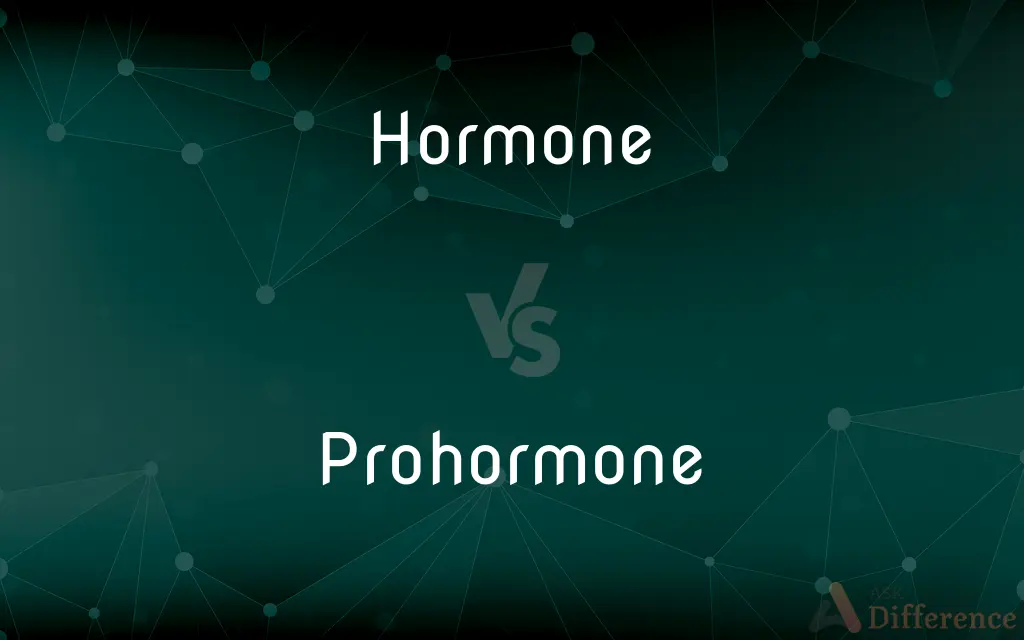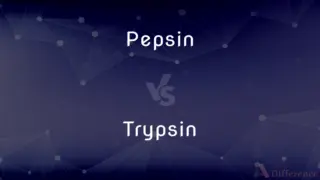Hormone vs. Prohormone — What's the Difference?

Difference Between Hormone and Prohormone
ADVERTISEMENT
Compare with Definitions
Hormone
A hormone (from the Greek participle ὁρμῶν, "setting in motion") is any member of a class of signaling molecules in multicellular organisms, that are transported to distant organs to regulate physiology and behavior. Hormones are required for the correct development of animals, plants and fungi.
Prohormone
An inactive compound that is converted by enzymes into a biologically active hormone.
Hormone
A substance, usually a peptide or steroid, produced by one tissue and conveyed by the bloodstream to another to effect physiological activity, such as growth or metabolism.
Prohormone
(hormone) A substance that is a precursor to a hormone, usually having minimal hormonal effect by itself
Hormone
A synthetic compound that acts like a hormone in the body.
ADVERTISEMENT
Hormone
Any of various similar substances found in plants and insects that regulate development.
Hormone
(physiology) Any substance produced by one tissue and conveyed by the bloodstream to another to effect physiological activity.
Hormone
(pharmacology) A synthetic compound with the same activity.
Hormone
Sex hormones, as used in hormone replacement therapy for transgender or intersex people.
I'm going to be going to slightly higher doses of hormones soon.
Hormone
(botany) Any similar substance in plants.
Hormone
To treat with hormones.
Hormone
A chemical substance formed in one organ and carried in the circulation to another organ on which it exerts a specific effect on cells at a distance from the producing cells; thus, pituitary hormones produced in the brain may have effects on cells in distant parts of the body..
Hormone
A chemical substance, whether natural or synthetic, that functions like a hormone in a living organism. Thus, synthetic steroid hormones may be more effective than their natural counterparts.
Hormone
A substance that controls growth rate or differentiation in plants; also called phytohormone. The most well-known are the auxins that stimulate growth at the growing tips of plants, and control root formation and the dropping of leaves; and the gibberellins, which are used in agriculture to promote plant growth.
Hormone
The secretion of an endocrine gland that is transmitted by the blood to the tissue on which it has a specific effect
Share Your Discovery

Previous Comparison
Cut vs. Fastball
Next Comparison
Pepsin vs. Trypsin














































